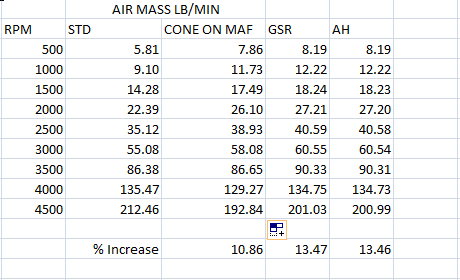https://www.fiatforum.com/grande-punto/232673-modifying-gsr-induction.html look through this. i didnt say anything about the back of the engine this is what i was thinking with regards to my last post. silicon piping that goes down to the wheel well away from the heat source.
i realise this is the 1.9 so different design for the oem airbox but there is an improvement to the intake
https://www.fiatforum.com/grande-punto/223798-diy-bespoke-custom-mjet-induction-kit.html
i realise this is the 1.9 so different design for the oem airbox but there is an improvement to the intake
https://www.fiatforum.com/grande-punto/223798-diy-bespoke-custom-mjet-induction-kit.html
Right!!!
I've cleaned up all the data, removed obvious outliers and heres the results.
I'm more than mildly impressed with myself too

Theres a minmal difference between mine and the GSR though I've discovered recently that some of the GSR piping early on in the intake is of a slightly higher diameter than mine.
I've also noticed that the tube into the filter on mine is in a little to far and may be making a lip preventing airflow.


